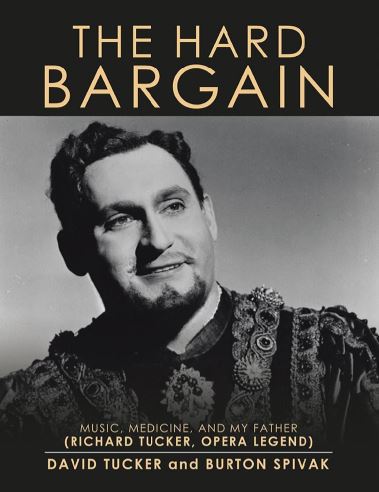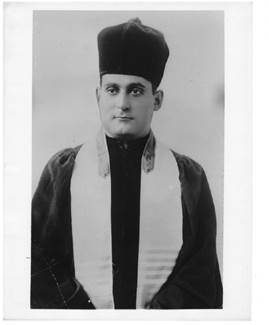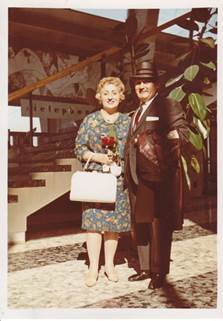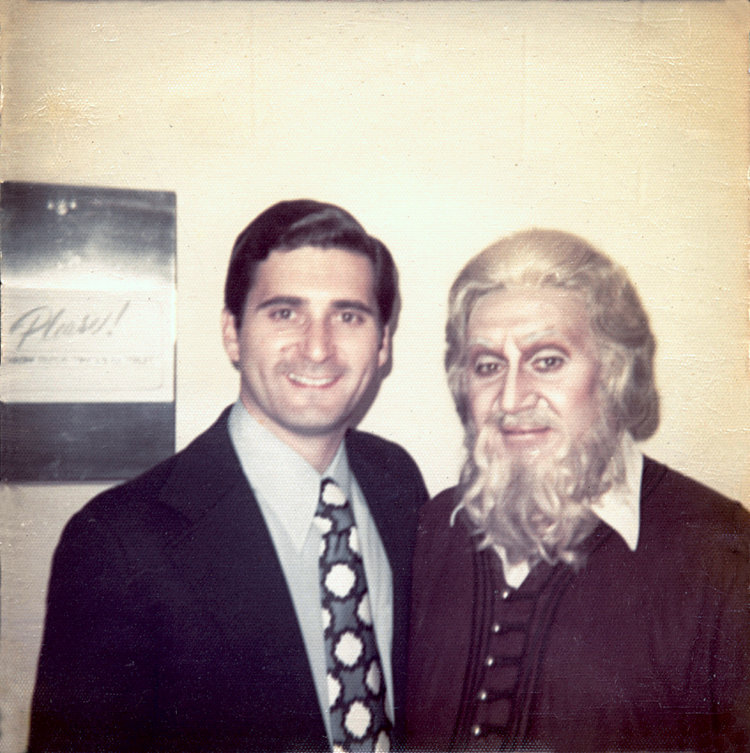
20th March 2018
Kindle E
The Hard Bargain: Music, Medicine, and My Father (Richard Tucker, Opera Legend) by David Tucker and Burton Spivak

20th March 2018
Kindle E
David Tucker, Richard’s middle son, between the oldest Barry, and the younger Henry, has written a fine memoir of what it was like growing up as the son of a famous father. David who had tasted as a son the fame of his father, and also had his own ambitions to be a singer; ambitions that got no support from his father.
It is a story of a proud Jewish father wanting his son to become a surgeon, almost an obsession with Richard, the belief in medicine as a noble calling. As David was born in 1941 he had youthful memories of the struggles of his father to “find” his great voice (it was not apparent at the beginning) and the resistance he ran into at the onset of his career, not the least from his brother-in-law Jan Peerce. Not resistance so much as lack of belief and encouragement, and ultimate jealousy. Although David does not really explain the famous rift between the Tucker’s and the Peerce’s, this memoir seems to buttress the ideas put forth in the James Drake biography of Richard Tucker that ultimately it was jealousy on the part of Peerce. David recounts that at a family function where the Tucker’s stayed on one side of the room and the Peerce’s the other, he ventured over to the Peerce side and spoke with his uncle Jan who expressed interest in hearing David sing. David, unbeknownst to his father, twice went to the Peerce home in New Rochelle and sang for his uncle who gave him some, not a lot, of encouragement.


 (David and his father)
(David and his father)
In order to keep peace in the family David embarked on a two-pronged college career, pre-med at Tufts University in the Boston suburbs, and singing. His mentor at Boston’s New England Conservatory was Frederick Jagel. David promised his father that he would decide after a few years which career he would ultimately pursue, the understanding being that it probably would be medicine. An anecdote in the book of interest to lovers of tenors and opera is that while in Italy (year?) Tucker and his family visited retired Giacomo Lauri-Volpi. Lauri-Volpi insisted that Tucker sing “Racondita armonia” for him; Tucker did not like to sing full voice in the morning and didn’t want to sing for the older tenor as he had nothing to prove. After Richard finished singing the “Tosca” aria, Lauri-Volpi got up and sang it somewhat brilliantly in his eighty-plus year old voice, as if to show up the visitor. Lauri-Volpi was interested in the fact that David was studying with his former colleague from the Met, Jagel.
Richard Tucker comes off as a difficult but ultimately a good father. David describes his family’s strong bond and the living Judaism they practiced. David like his father is a fairly devout Jew, keeping many of the ancient rules, somewhat modified for modern life. David became an opthomologist with a brilliant career in that medical specialty. He speaks reverently of his mother Sara who found the delicate touch in dealing with Richard’s eccentricities. There is a lot in the book about David’s meeting luminaries in the opera world, but not much detail; there are several chapters dealing mostly with his medical career.
Lovers of Richard Tucker and lovers of opera as seen from the sidelines will find much of interest in this book. Ultimately it is a book about a “nice Jewish” guy and his journey on the periphery of the opera world.
Charles Mintzer, September 2018